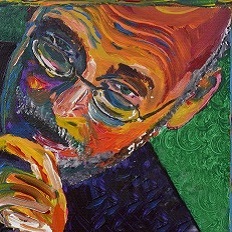Spidey sense
A well-developed spidey sense is a valuable tool for hospitalists.

For those of you who live in another universe (for example, that of DC Comics) and aren't familiar with the details, Peter Parker is a high school student who gets bitten by a radioactive spider while on a school field trip, transforming him into Spider-Man. Spider envenomation of the nonradioactive type can lead to a variety of unpleasant effects, especially from brown recluse or black widow spiders. In this case, however, a radioactive bite causes Peter to develop a variety of arachnoid powers (though sadly he never develops a taste for flies). Among his new attributes is the ability to sense impending danger, in the form of a “spidey sense.” This skill helps him avert some disasters and frequently prevents the demise of Spider-Man and his friends. Having an active spidey sense is a valuable characteristic for every hospitalist.
For example, your patient has been doing fairly well. His labs are normal and his vital signs are stable, but when you see him that morning with your medical student, he is quiet. The student fills the auditory vacuum with his neo-medical patter. You've moved on to the next patient, but something is nagging you, that feeling that something is wrong. Your spidey sense is tingling. You head back to the patient's room, and silencing the overeager learner, you ask the patient what's bothering him: Are you in pain? Are you short of breath? Is there anything else? No, no, and no. So it seems everything is OK. But then it hits you that this patient was extremely loquacious yesterday. And now he's monosyllabic. His vital signs and labs are fine, but he's having some kind of neurologic event. Sixty minutes later he's getting tPA for his acute CVA.
Or it's been a long day and you are ready to go home. You've perpetually rounded and written your ICD-10-compliant notes. You've signed out and are 20 minutes away from a pre-dinner workout. As you go to roll your pager, you get a message that a patient's family member is here and has questions. This is the same patient whose daughter has been annoying you for the last three days with endless questions, unreasonable demands, and tangential self-referential history. It would be so easy to walk out the door, and you start to. But something is nagging in your brain, a tingling in your spine. It's your spidey sense, and you head up the stairs with a sigh of resignation. When you get to the room, it's not the same daughter at all, but her sister, who is a nurse, and in 15 high-intensity minutes you've established a code status, a care plan, and a discharge disposition, as well as clarified that she has power for medical decision making. You walk out the door smiling.
That night you wake up at 2 a.m. from a twisted dream and think about one of your patients again. You call the nurse to check on his status and discover that his antibiotics were not restarted, and also he's not NPO for his ERCP tomorrow, which you've waited three days to get. Tragedy narrowly averted thanks to your nighttime spidey sense.
Harry Harwick, the first administrator of the Mayo Clinic, said that one of the keys to being a successful leader was the ability to “smell trouble.” Some research on rapid response has found one of the most reliable predictors of the need for intervention to be a nurse's level of worry or concern for the patient. You might doubt your own or others' spidey sense, but we all have it to some degree. You just have to learn how to listen. Identifying the potential for a bad outcome is not just accumulating data such as laboratory results, vital signs, and DRGs into an artificial intelligence-mediated potpourri of surveillance, though one day that may be the case. For now, we still must rely on that ill-defined spidey sense, which wakes us up at 2 a.m. or keeps us from leaving the hospital before we check on that patient one more time.
The epigraph of this column comes from a talk by Will Mayo to the lawyers of the Bar Association of Minnesota and Wisconsin on the importance of public health laws. These are the same concepts that Peter Parker's Uncle Ben taught him 53 years later. He said, “With great power comes great responsibility.”
As hospitalists, we wield great power over our patients. A well-developed spidey sense is a valuable tool in rising to our responsibility for them. We wield power over our learners, hopefully being great role models and mentors and shaping their careers, and we wield power over our hospitals, helping guide administrative efforts to improve quality, safety, value, and experience. We must all be friendly neighborhood hospitalists. It's just too bad we don't have a cool theme song.



